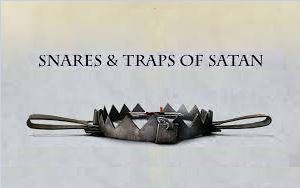Wealth and Taqwa: Balancing Dunya and Aakhirah
![]()
Wealth really puts people to the test. For some, it feels like a gift—comfort, chances to do good, the ability to give for Allah’s sake. For others, it weighs heavy, feeding pride, greed, and making them forget about the Hereafter. Islam doesn’t look down on wealth itself. The question is always: How did you earn it? How do you spend it? What does it do to your heart?
WEALTH AS A TEST FROM ALLAH
Allah spells it out in the Qur’an:
“Your wealth and your children are but a trial, and Allah has with Him a great reward.” (Qur’an 64:15)
Just like poverty, being rich is a test. It’s not some badge of honor or proof you’ve made it—it’s a responsibility. Every dollar you make, every thing you own, every comfort you enjoy, you’ll answer for on Judgment Day. The Prophet ﷺ put it plainly:
“The feet of the son of Adam shall not move on the Day of Resurrection until he is asked about… his wealth and how he earned it, and how he spent it.” (Sunan al-Tirmidhi, Sahih)
So wealth isn’t just a blessing by default. It’s a trust—something you have to handle carefully.
WHEN WEALTH IS A BLESSING
Wealth is a blessing when you earn it honestly and spend it in ways that please Allah.
Charity: You can feed the hungry, help orphans, and build mosques.
Zakah: Giving from your wealth purifies it and fights inequality.
Service: With money, you can fund schools, clinics, and projects that help the whole community.
The Prophet ﷺ praised those who use their money well:
“This wealth is green and sweet. Blessed is the wealth of a Muslim from which he gives to the poor, the orphan, and the traveler.” (Sahih al-Bukhari, Sahih Muslim)
Used like this, wealth doesn’t just benefit you—it keeps rewarding you even after you’re gone.
WHEN WEALTH BECOMES A BURDEN
But wealth can turn ugly. It can harden your heart, make you arrogant, or distract you from Allah. Here’s where things go wrong:
Pride: You start thinking you earned everything on your own.
Neglecting zakah and charity: You hoard money instead of letting it do good.
Love of dunya: You care more about getting richer than about the Hereafter.
Corruption: You start cutting corners, earning through haram ways—interest, cheating, exploiting others.
The Qur’an warns:
“Do not let your wealth and your children distract you from the remembrance of Allah. And whoever does that—it is they who are the losers.” (Qur’an 63:9)
When money becomes a distraction or a source of sin, it just adds to your regret in the end.
FINDING BALANCE: WEALTH WITH TAQWA
Islam doesn’t tell you to get rid of your money. It tells you: Control it—don’t let it control you. Money is a tool, not your master. Keep it in your hand, not your heart.
How do you keep wealth a blessing?
Earn only in halal ways.
Pay your zakah and give charity often.
Live simply. Don’t show off.
Think of the poor and use your wealth to lift others up.
Keep asking Allah for forgiveness—He’s the real Provider anyway.
IN THE END
Wealth isn’t good or bad on its own. It’s a test. In grateful, conscious hands, it brings reward after reward. In arrogant, careless hands, it becomes a burden that drags you down.
The real question is: Does my wealth bring me closer to Allah or pull me away?
If you use it to help others and obey Allah, it becomes your path to Paradise. But if it blinds your heart and feeds your ego, it becomes a chain holding you back. The choice—blessing or burden—always comes down to how you carry this trust from Allah.



